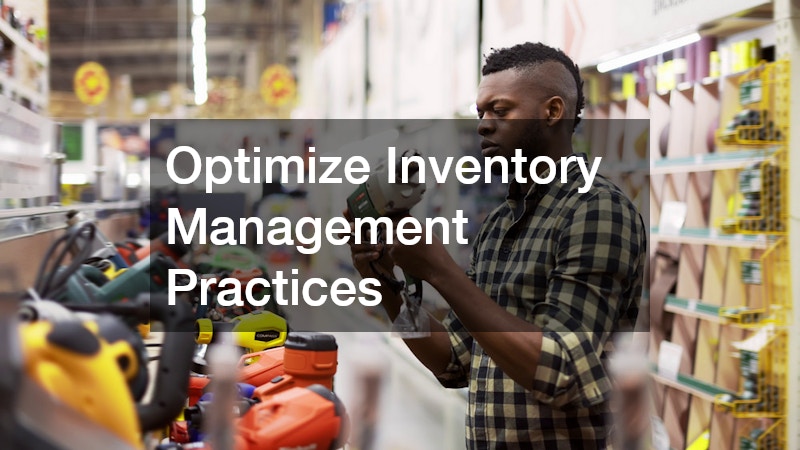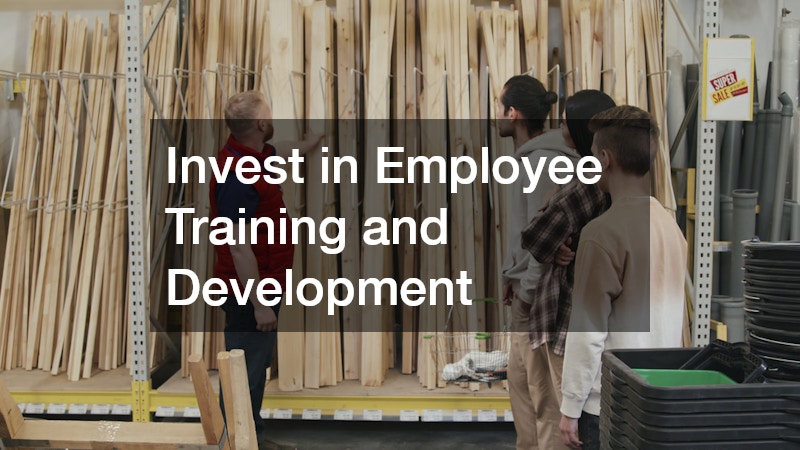

Building a successful business in the natural landscape supply industry requires vision, strategy, and a deep understanding of your products and your market. The journey can feel overwhelming for those just starting out, but focusing on foundational principles can set the stage for long-term success. Understanding customer needs, streamlining operations, and fostering strong relationships are all critical components of growth. Additionally, keeping up with trends in landscaping, sustainability, and technology will ensure your business remains competitive and relevant in a constantly evolving market.
For an up-and-coming landscape supplier, the key is balancing big-picture strategy with day-to-day operations. This includes not only sourcing high-quality materials but also managing inventory, developing pricing strategies, and building a reputation for reliability. By committing to continuous learning and strategic thinking, emerging leaders in landscape supply can establish themselves as trusted and innovative players in their field.
Understanding the financial and logistical aspects of a business is essential from the outset. From budgeting for seasonal fluctuations to planning for transportation and storage needs, careful planning allows a new business to operate efficiently and avoid common pitfalls. Combining operational awareness with market knowledge gives emerging leaders the confidence to scale their business responsibly while maintaining high standards.
Establish Strong Supplier Relationships

Successful businesses rely heavily on strong supplier relationships to ensure consistent product availability and quality. Establishing trust and clear communication with suppliers allows businesses to secure favorable pricing, access new products, and respond quickly to market demands. Suppliers are more than just transactional partners; they can offer insights into emerging trends and help a business maintain its competitive edge in a crowded market.
Specifically, developing partnerships with local hardware stores can be particularly beneficial for a natural landscape supply operation. By negotiating bulk purchases and establishing regular delivery schedules, a business can minimize stock shortages and reduce operational disruptions. Building these relationships also creates opportunities for co-marketing efforts or exclusive product lines, giving an up-and-coming natural landscape supply boss a tangible advantage in meeting customer needs consistently.
Prioritize Quality in Product Selection
In the natural landscape supply industry, prioritizing quality in the products you offer is essential for maintaining customer trust and long-term success. High-quality materials not only enhance the results of landscaping projects but also reflect the professionalism and reliability of your business. Investing in superior products demonstrates a commitment to excellence, which can lead to repeat business and strong referrals.
For example, when selecting roof supplies as part of your inventory, focusing on durability, material integrity, and supplier reputation ensures your customers receive products that meet their expectations. By carefully vetting each item and aligning selections with industry standards, a landscape supply business can reduce returns, complaints, and wasted resources, while building a reputation for quality that distinguishes it from competitors.
Prioritizing quality in product selection can also enhance your brand’s reputation in the natural landscaping market. Customers are more likely to return and refer others when they associate your business with reliable, high-standard products. Quality control measures, such as inspecting shipments and maintaining consistent supplier evaluations, reinforce this reputation and reduce the risk of errors or defective materials reaching clients. By making quality a visible priority, a landscape supplier not only satisfies current customers but also strengthens its position as a trusted industry leader.
Optimize Inventory Management Practices

Efficient inventory management is a cornerstone of any successful natural landscape supply business. Keeping track of stock levels, understanding product turnover, and forecasting demand helps prevent shortages or excesses that can strain finances. A well-organized inventory system also allows staff to operate more effectively, reducing delays and improving customer satisfaction. Natural landscape supply businesses that invest in proper inventory practices position themselves for smoother operations and stronger profitability.
Specifically, integrating equipment rental into your inventory strategy can create new revenue streams and enhance customer service. By tracking which equipment is most frequently requested and scheduling regular maintenance, your business can maximize utilization while minimizing downtime. Pairing natural landscaping materials with available rental equipment also provides clients with a more comprehensive service, making your business a one-stop solution for landscaping needs.
Implementing advanced inventory management strategies such as automated stock alerts or predictive analytics can further improve efficiency for a natural landscape supply business. These tools help anticipate seasonal demand, plan for bulk orders, and avoid overstocking perishable or specialized materials. Integrating these systems with equipment rental schedules ensures that both products and tools are available when customers need them. By taking a proactive and data-driven approach, a business owners can streamline operations, reduce waste, and provide a consistently reliable service experience.
Develop a Clear Pricing Strategy
A clear and strategic approach to pricing is essential for sustaining growth in the natural landscape supply industry. Pricing impacts profitability, customer perception, and competitive positioning, making it a crucial element of business planning. By analyzing costs, market trends, and competitor rates, a hardware supplier can set prices that are both attractive to customers and financially sustainable.
For example, incorporating porta potty rental into your pricing model requires careful consideration of operational costs, rental duration, and market demand. Establishing tiered pricing or package deals can help maximize revenue while providing clients with transparent options. Clear and strategic pricing in all aspects of landscape supply operations builds trust with customers and ensures your business remains profitable in the long term.
Invest in Employee Training and Development

Investing in employee training and development is vital for maintaining high standards in a natural landscape supply business. Skilled employees not only perform their roles more efficiently but also contribute to innovation and problem-solving within the company. A commitment to ongoing education fosters loyalty, reduces turnover, and ensures that the team is prepared to meet evolving industry demands.
Specifically, offering training on proper use and maintenance of manufacturing tools can enhance safety and productivity on-site. Employees who understand the correct handling and applications of tools are less likely to cause damage or accidents, which protects both your workforce and your inventory. Integrating this focus into a landscape supply business ensures operations run smoothly and positions the company as a professional, knowledgeable, and reliable service provider.
Leverage Local Marketing Opportunities
Marketing is a critical aspect of growing a natural landscape supplier, and local outreach can provide a particularly strong foundation. Understanding the needs of your community and targeting local channels helps create awareness, build trust, and attract a loyal customer base. Grassroots marketing strategies, such as participating in community events, offering demonstrations, or forming partnerships with nearby businesses, are especially effective for landscape suppliers that want to establish a strong presence.
For instance, promoting bulk chicken manure to local landscapers and garden centers can demonstrate the value and quality of your products. Hosting workshops or offering trial samples gives potential clients a tangible experience with what your business provides. By leveraging these local marketing opportunities, a landscape supply business can generate steady demand while reinforcing its reputation as a reliable source for high-quality landscaping materials.
Embrace Sustainable Landscaping Trends

Sustainability is increasingly influencing customer choices in the natural landscape supply sector. Embracing eco-friendly practices and products not only aligns your business with environmental values but also opens doors to new market opportunities. From water-efficient materials to renewable landscaping solutions, staying ahead of these trends allows a business to meet evolving client expectations and differentiate itself from competitors.
Specifically, integrating a heavy equipment hauling service that prioritizes fuel-efficient transport or uses modern, low-emission machinery demonstrates a commitment to sustainability. By combining environmentally conscious practices with your product offerings, you can attract clients who value green solutions while maintaining efficiency in operations. A supplier that emphasizes sustainability positions itself as both responsible and forward-thinking.
Utilize Technology for Business Efficiency
Incorporating technology into a natural landscape supply business enhances operational efficiency, improves accuracy, and supports growth. From inventory management systems to customer relationship software, technology streamlines processes and reduces human error. Businesses that adopt technological solutions can respond faster to market changes, track performance metrics more effectively, and maintain higher levels of customer satisfaction.
For example, using automated systems to manage activated alumina stock can prevent shortages or overstock issues while providing detailed analytics on usage and demand patterns. By implementing digital solutions across various aspects of a business, you ensure that day-to-day operations are optimized, costs are minimized, and staff can focus on higher-value tasks that drive growth.
Beyond inventory and customer management, technology can also improve communication and workflow within a business. Tools such as project management software, digital scheduling, and automated reporting allow teams to coordinate more effectively, reducing errors and delays. Additionally, leveraging online platforms for client interactions, ordering, and feedback ensures a smoother customer experience while freeing staff to focus on strategic initiatives that drive growth. By embracing a technology-driven approach across all operational areas, a natural landscape supply business can maintain agility, scale efficiently, and deliver consistently high-quality service.
Network Within the Landscaping Community
Networking is a vital component of building a strong natural landscape supply business. Establishing connections with landscapers, suppliers, and other industry professionals can lead to partnerships, referrals, and shared knowledge. Regular engagement within the landscaping community also provides insight into emerging trends and client needs, which allows a business to adapt and remain competitive over time.
For example, partnering with moving services can provide a logistical advantage when transporting bulky landscaping materials or delivering products to clients efficiently. By collaborating with trusted service providers, a landscaping goods supply business can offer a more comprehensive solution to customers while fostering long-term industry relationships. Networking not only strengthens operational capabilities but also positions the business as a well-connected and reliable presence in the community.
Monitor Financial Performance Consistently
Maintaining a close eye on financial performance is critical for any landscape supply business. Regularly reviewing revenues, expenses, and profit margins ensures that the business remains sustainable and can adapt to fluctuations in the market. Monitoring financial metrics also supports informed decision-making, allowing owners to invest strategically and plan for long-term growth.
For instance, tracking the profitability of services such as hydroseeding can reveal which offerings contribute most to the bottom line and which may need adjustments. By analyzing costs and returns for each product and service, a business can optimize its portfolio, reduce waste, and make data-driven decisions that enhance overall financial health. Consistent financial monitoring safeguards stability while creating opportunities for expansion.
Implementing financial forecasting and budgeting tools can provide a natural landscape supply business with a clear roadmap for growth. Predictive models allow owners to anticipate seasonal fluctuations, plan for inventory needs, and allocate resources efficiently across products and services. By combining historical data with future projections, a business can make proactive decisions, such as investing in new equipment, expanding service offerings, or adjusting pricing strategies. This forward-looking approach not only strengthens financial stability but also positions the business to seize opportunities and remain competitive in the evolving landscaping market.
Building a Thriving Supply Business
Becoming a successful natural landscape supply boss involves more than simply stocking products—it requires strategic planning, operational efficiency, and strong relationships. By focusing on quality, leveraging technology, embracing sustainability, and staying engaged with both suppliers and clients, emerging business owners can build a foundation for long-term success. Each decision, from inventory management to pricing strategies, contributes to the overall health and reputation of the company.
Growth in the landscaping industry is driven by a commitment to excellence and adaptability. Monitoring financial performance, fostering employee development, and staying connected to the community ensures that the business remains resilient in a competitive market. By integrating these practices, an up-and-coming natural landscape supply boss can establish a thriving, sustainable business that meets the evolving needs of clients while securing a strong foothold in the industry.
Cultivating a forward-thinking mindset is key to long-term success. Remaining open to new ideas, technologies, and approaches within natural landscape supply allows a business to anticipate trends and stay ahead of competitors. By blending practical management, innovative strategies, and a strong commitment to customer satisfaction, a business can grow steadily, maintain profitability, and become a respected leader in the landscaping community.





